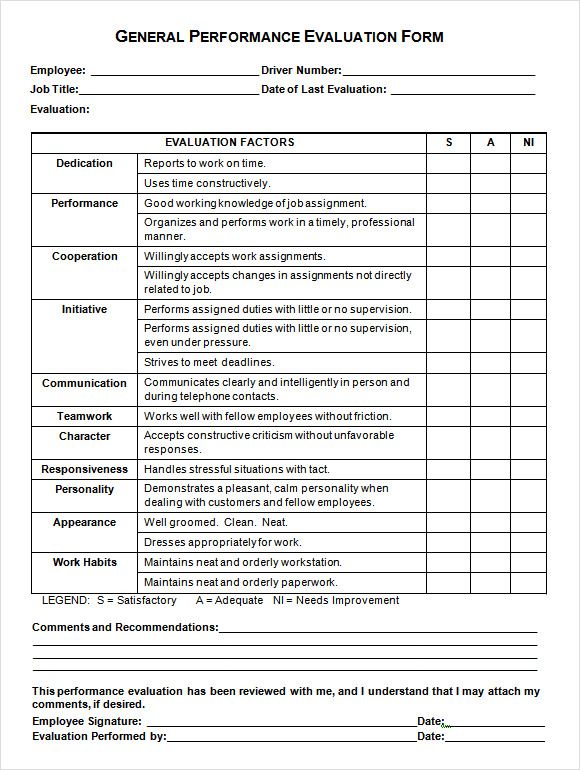Employee performance evaluation is an essential part of any organization’s management process. They provide a structured framework for assessing an employee’s job performance, identifying areas for improvement, and recognizing achievements. However, conducting effective performance evaluations requires asking the right questions to gather meaningful feedback and insights.

In this guide, we will explore the top employee performance evaluation questions that can help managers and HR professionals conduct thorough and productive evaluations.
1. What are the key responsibilities of the employee?
Understanding the key responsibilities of an employee is crucial for evaluating their performance. By asking this question, you can assess whether the employee has a clear understanding of their role and if they are fulfilling their duties effectively. It also helps identify any gaps in their job description or tasks that may need clarification.
2. How well does the employee meet deadlines and complete tasks?
Meeting deadlines and completing tasks promptly is a fundamental aspect of job performance. By asking this question, you can evaluate the employee’s time management skills, ability to prioritize tasks, and overall productivity. It also helps identify any potential challenges or obstacles that may be affecting their ability to meet deadlines.
3. Does the employee demonstrate strong communication skills?
Effective communication is essential in any workplace. By asking this question, you can assess the employee’s ability to clearly communicate ideas, listen actively, and collaborate with colleagues. It also helps identify any areas for improvement, such as providing feedback or expressing ideas more effectively.
4. How well does the employee handle feedback and criticism?
Receiving feedback and criticism is an integral part of personal and professional growth. By asking this question, you can evaluate how the employee responds to feedback, whether they are open to constructive criticism, and if they take proactive steps to improve their performance. It also helps identify any potential areas where additional support or training may be beneficial.
5. Is the employee proactive and self-motivated?
Hiring employees who are proactive and self-motivated can greatly contribute to the success of an organization. By asking this question, you can assess whether the employee takes initiative, seeks growth opportunities, and demonstrates a strong work ethic. It also helps identify any areas where the employee may benefit from additional challenges or responsibilities.
6. Does the employee demonstrate strong problem-solving skills?
Problem-solving skills are highly valued in the workplace. By asking this question, you can evaluate the employee’s ability to analyze complex situations, identify solutions, and make informed decisions. It also helps identify any areas where the employee may need additional support or training to enhance their problem-solving abilities.
7. How well does the employee work in a team?
Collaboration and teamwork are vital for the success of many projects and organizations. By asking this question, you can assess how well the employee works with others, whether they contribute positively to team dynamics, and if they actively participate in team activities. It also helps identify any potential areas where the employee may benefit from additional team-building or communication training.
8. Does the employee demonstrate a commitment to professional development?
Continuous learning and professional development are essential for staying competitive in today’s rapidly changing work environment. By asking this question, you can evaluate the employee’s willingness to learn, engage in professional development activities, and stay up-to-date with industry trends. It also helps identify any areas where the employee may benefit from additional training or development opportunities.
Benefits of Using Employee Performance Evaluation Questions
Using employee performance evaluation questions can provide numerous benefits for both the employee and the organization:
- Clarify expectations: By asking specific questions about key responsibilities and tasks, managers can ensure that employees have a clear understanding of their role and what is expected of them.
- Identify strengths and weaknesses: Performance evaluation questions help identify areas where employees excel and areas where they may need improvement. This information can be used to provide targeted training and development opportunities.
- Improve communication: Asking questions about communication skills and teamwork can highlight areas for improvement and foster better collaboration among team members.
- Promote employee engagement: Performance evaluations that include questions about professional development and growth opportunities can help employees feel valued and motivated to perform at their best.
- Support career progression: By discussing future goals and aspirations, performance evaluation questions can help employees and managers create a roadmap for career development within the organization.
- Build a culture of feedback: Regular performance evaluations that include open and honest questions about feedback and criticism can foster a culture of continuous improvement and learning.
Conclusion
Employee performance evaluation questions play a crucial role in assessing job performance, identifying areas for improvement, and recognizing achievements. By asking the right questions, managers and HR professionals can gather valuable feedback and insights to support employee development and organizational success. It is important to approach performance evaluations with a balanced and constructive mindset, focusing on both strengths and areas for improvement. By using the questions provided in this guide, you can conduct effective performance evaluations that drive employee growth and contribute to a positive work environment.